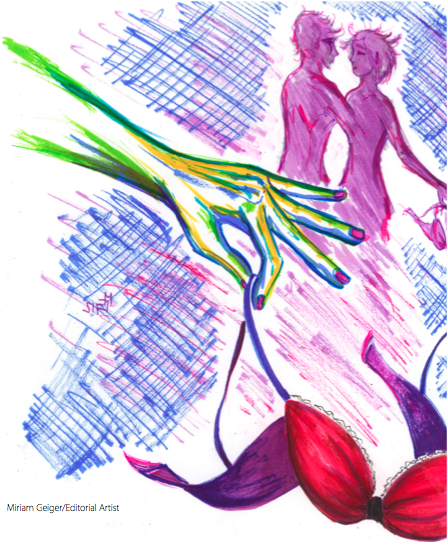
From condom use — or the lack thereof — to the portrayal of sex in media, Binghamton University researchers dissected the ins and outs of sexual hookups among college students in a research article published this fall.
The study was co-authored by Sean Massey, an associate professor of women, gender and sexuality studies, Chris Reiber, an associate professor of anthropology and Ann Merriwether, a lecturer in the psychology department. Justin R. Garcia, a research fellow at The Kinsey Institute, was the lead author of the article.
Between 60 and 80 percent of college students in North America have been involved in at least one sexual hookup, according to the study, which defines hooking up as “brief uncommitted sexual encounters among individuals who are not romantic partners or dating each other.”
Studies showed that students had varied reasons for hooking up.
According to Garcia and Reiber, 89 percent of men and women reported that physical gratification was important, but 54 percent reported emotional gratification and 51 percent reported a desire to initiate a romantic relationship.
“[It was interesting] how similar college men and women are in their motivations for hooking up,” Garcia said.
Despite the uncommitted nature of hookups, 65 percent of women and 45 percent of men in a study of 500 students hoped their hookup would result in a committed relationship.
The study also looked at the negatives of hookups, including the role of drugs and alcohol, “hookup regret” and the lack of condom use. In a study of 270 sexually active college-aged students, 72 percent said that they regretted at least one instance of sexual activity.
Massey said, however, this did not mean hookups themselves were bad.
“Of course there are multiple ways that it can be unsafe and harmful such as alcohol, drugs, coercion, low self-esteem, etcetera,” Massey said. “But it may also be a perfectly healthy, safe and fun thing for people to do.”
The study found the representation of casual sex in popular culture to be a major factor in the rise of hookup culture.
“You can never discount the role of culture in any study,” Merriwether said. “Hookup discourse is present on television, in music. One has to think that that had an impact on emergent adult attitudes about hookups.”
The research for the article looks primarily at young adults, according to Garcia.
“Most of the data reviewed in our article focused on college students, who are primarily in the developmental stage of emerging adulthood,” Garcia wrote in an email.
Timothy Liberti, a junior majoring in economics, said he agrees that American culture contributes to the prevalence of hookups.
“Guys usually just want to hook up because it’s the spectacle of the American way,” Liberti said. “Guys do it to show off to their friends, and girls do it to show off to their friends, too.”
He said he believes media plays a role in people’s decisions.
“People are just making themselves happier because they want what they see on television and in magazines,” Liberti said.
Eryn Tighe, a senior double-majoring in human development and psychology, said that increased communication through technology has helped foster a hookup culture.
“Parents and children today don’t have an open flow of communication anymore,” Tighe said. “Kids don’t rely on their parents as much because they have technology to turn to.”


